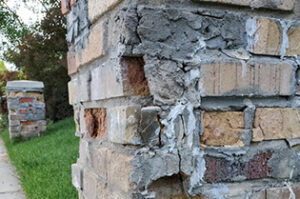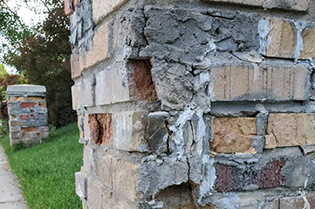Masonry repair is a process of repairing individual portions of a wall. It is much cheaper than masonry restoration, but it is also time-consuming. In some cases, it is necessary to replace entire sections of the wall. However, repairing individual portions of a wall may not be possible. If you have small cracks in your masonry, you can simply caulk them.
The process of masonry repair is a crucial part of maintaining the structure of a building. These repairs can be as small as filling a crack in a wall, or they can be as large as replacing a brick or stone. If a wall is in need of repair, it is important to have it professionally performed by an expert because the structural integrity of a building depends on this work. For professional help, visit https://masonrycharleston.com/.
One of the most common masonry repair procedures involves removing old mortar and replacing it with new mortar. Old mortar can become deteriorated due to a variety of factors, including frost. A masonry repair expert will be able to identify these reasons and correct the problem with fresh mortar.
In some cases, a simple repair may be all that is necessary. In other cases, a repair may be needed for a structural component of a building, such as the foundation wall. A masonry repair may also include repairing individual bricks or replacing a cracked cement chimney cap or degraded flue tiles. In this case, the repair can be a necessary step before a larger-scale repair.
Repairing masonry can save a building considerable amounts of money by reducing the amount of heat loss through its walls. The process of repairing bricks, stone, and other masonry parts can also improve the appearance of a building by restoring its gloss, sheen, shadow, and texture. Additionally, cracked masonry can lead to structural damage, so repairs must be performed in a timely manner.
Despite its obvious benefit, there are a number of disadvantages to repairing bricks. Excess moisture can cause efflorescence, which is a white crystalline substance that develops on the face of a brick. This substance is caused by excess moisture and can be cleaned with water. If it is present in a building after construction, it is a clear indication that there is excessive moisture behind the brick.
Cracks and fissures are the result of the natural aging of bricks and stone. When fissures extend beyond 30 degrees, they become a danger to the integrity of a structure. To prevent these problems, masonry professionals can seal cracks. They can also provide a protective barrier to prevent water from leaking through. This can prevent water from freezing in cold weather and further damage your property over time.
The cost of masonry repair varies from region to region. It costs from about $600 to $1,500 for a small window or door to $5,000 to $35,000 for a complete restoration. Brickwork restoration may also include the replacement of damaged bricks, waterproofing, and decorative mortar wash.
Masonry repair is a less expensive option than restoring a structure. At the same time, restoration costs between $25 and $60 per square foot, and repairing brickwork can cost around $8 per square foot. This cost increases if detailed brickwork needs to be replaced. Repairs can be less expensive if the bricks have been protected against thermal expansion and contraction.
However, it is important to remember that masonry repair requires a skilled professional. Masons must have years of on-the-job training and apprenticeship before they can perform a repair. Hiring a trained mason will help you avoid wasting money on costly repairs. Be sure to check their references and ask to see examples of their work.
Whether you’re renovating your home or looking to restore a historic building, you’ll want to hire a contractor who specializes in masonry repair. The right contractor can ensure the repair job is done right and enhances the building’s appearance. However, restoration is more expensive and takes longer than masonry repair.
In addition to repairing damaged brickwork, masonry contractors can also perform complete rebuilds. Masonry repairs may be required in cases of cracks in brickwork, old mortar, water leaks, cracked foundations, and other conditions. You may even need to replace old brick walls if you want to maintain the structural integrity of your building.
In some cases, masonry repair requires less time than masonry restoration. It also doesn’t require period-specific materials. It is a good option for homeowners who don’t have the budget to spend on a full restoration. However, it requires serious dedication and expertise. Therefore, it is best to leave the restoration to the professionals.
Brick repairs also involve repacking mortar to prevent water seepage and enhance the appearance of the exterior face of the structure. A masonry restoration expert can tuckpoint cracks to match the existing mortar.

